-
American Association for Cancer Research (AACR)

- AACR: Career Development Awards for Immuno-oncology Research: These grants represents a joint effort to promote and support junior faculty to conduct immuno-oncology research and establish a successful career path in this field. Particular emphasis for one of the grants should be placed on biological mechanisms underlying checkpoint inhibitor resistance and/or approaches to overcome this resistance. The research proposed for funding may be basic, translational, clinical, or epidemiological in nature and must have direct applicability and relevance to immuno-oncology.
- AACR SU2C Innovative Research Grants (IRGs): These grants are an effort to support the next generation of extraordinary leaders in their quest to conquer cancer. The grants will provide substantial funding to early-career scientists whose novel, high-risk, high-reward immuno-oncology research proposals have significant potential for translational application and hold great promise for advancing SU2C's overarching goal of improving and saving the lives of patients. It is the hope that ideas for new SU2C Dream Teams will emerge from these Innovative Research Grants, and this criterion will be given a high priority in the evaluation of the applications.
-
Center for Clinical and translational Science: Funding Resources
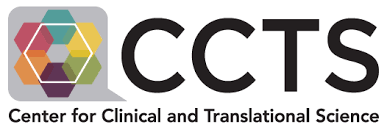
The UAB Center for Clinical and Translational Science (CCTS) promotes and advances scientific progress by providing grant writing seminars and workshop/courses that are designed for research fellows, clinical fellows, and general investigators.
-
Career Development Award for Pediatric Cancer Research

The AACR-Aflac, Inc. Career Development Award for Pediatric Cancer Research represents a joint effort to encourage and support junior faculty who have completed their most recent doctoral degree or medical residency within the past 11 years at the start of the grant term to conduct pediatric cancer research and establish successful career paths in this field.
-
Damon Runyon Physician Scientist Training Award

The Damon Runyon Clinical Investigator Award supports independent young physician-scientists conducting disease-oriented research that demonstrates a high level of innovation and creativity. The goal is to support the best young physician-scientists doing work aimed at improving the practice of cancer medicine.
-
Damon Runyon Clinical Investigator Award

The Damon Runyon Clinical Investigator Award supports independent young physician-scientists conducting disease-oriented research that demonstrates a high level of innovation and creativity.
-
Doris Duke Charitable Foundation Award

The Doris Duke Clinical Scientist Development Award provides grants to junior physician scientists to facilitate their transition to independent clinical research careers.
-
Enhanced Career Development Award
The Foundation Fighting Blindness (FFB) Enhanced Career Development Award will provide support and protected time to individuals with M.D. and M.D./Ph.D. degrees for career development in clinical research related to inherited orphan retinal degenerative diseases leading to research and clinical independence.
-
Lasker Clinical research Program
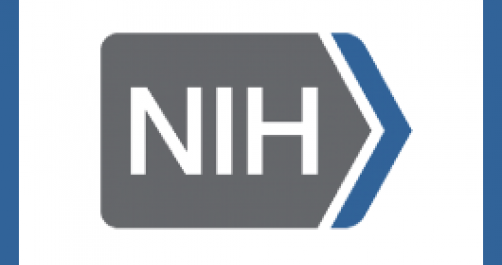
Scholars will receive appointments for 5-7 years as tenure-track investigators within the NIH Intramural Research Program with independent budgets. Successful Scholars will receive up to 3 years of NIH support for their research at an extramural research facility.
-
LeRoy Matthews Physician-Scientist Award
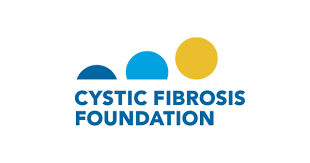
The LeRoy Matthews Physician-Scientist Award encourages outstanding newly trained pediatricians and internists to enhance clinical proficiency in CF related sub specialties and to develop the necessary research capabilities to become independent biomedical investigators.
-
Mallinckrodt Foundation

The Mallinckrodt (Edward Jr.) Foundation grant provides support for early stage investigators engaged in basic biomedical research that has the potential to significantly advance the understanding, diagnosis or treatment of disease. Deadline August 1st.
-
National Cancer Institute (NCI)
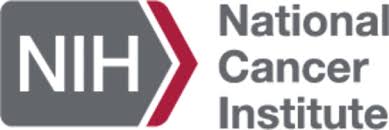
NCI Paul Calabresi Career Development Award for Clinical Oncology (K12): This award invites applications for institutional research career development (K12) programs from applicant organizations that propose to promote the training and career development of clinical trials researchers. It is intended to increase the number of clinicians (M.D.s, D.O.s, Pharm.D.s, nurses with Ph.D.s or equivalent) and non-clinician postdoctoral researchers trained to design and test clinical therapeutic research protocols in clinical trial settings.
-
National Institute of Dental and Craniofacial Research (NIDCR)
National Institute of Dental and Craniofacial Research (NIDCR) invites applications for the Pathway to Independence Award (K99/R00). The primary purpose of the Pathway to Independence Award (K99/R00) program is to increase and maintain a strong cohort of new and talented independent dual degree dentist scientists.
-
National Institute on Deafness and Other Communication Disorders (NIDCD)
The National Institute on Deafness and Other Communication Disorders (NIDCD) invites applications for basic and clinical research from scientists who are beginning to establish an independent research career. It cannot be used for thesis or dissertation research. The research must be focused on one or more of the areas within the biomedical and behavioral scientific mission of the NIDCD: hearing, balance, smell, taste, voice, speech, or language.
-
National Eye Institute (NEI) Institutional Mentored Physician Scientist Award (K12)

The National Eye Institute (NEI) invites applications from institutions to propose creative and innovative institutional research career development programs which prepare clinically-trained vision scientists for independent research careers. This initiative is intended to expand and strengthen the community of investigators engaged in clinical research. Such an increase in the number of well-trained clinical researchers is necessary to achieve a pool of scientists with contemporary, multidisciplinary expertise able to leverage recent advances in ocular genetics, therapeutics, bioengineering, and bio-behavioral research in order to enhance patient treatment and to increase scientific momentum in these fields.
-
NIH Mentored Clinical Scientist Research Career Development Award (K08, Clinical Trial Not Allowed)

NIH Mentored Clinical Scientist Research Career Development Award (K08) is designed to prepare qualified individuals for careers that have a significant impact on the health-related research needs of the Nation. Independent Clinical Trial Not Allowed.
-
NIH Mentored Clinical Scientist Research Career Development Award (K08, Clinical Trial Required)

NIH Mentored Clinical Scientist Research Career Development Award (K08) is designed to prepare qualified individuals for careers that have a significant impact on the health-related research needs of the Nation. Independent Clinical Trial Required.
-
NIH Mentored Patient-Oriented Research Career Development Award (K23, Clinical Trial Not Allowed)

NIH Mentored Patient-Oriented Research Career Development Award (K23) is intended to support the career development of individuals with a clinical doctoral degree who have made a commitment to focus their research endeavors on patient-oriented research. Independent Clinical Trial Not Allowed.
-
NIH Mentored Patient-Oriented Research Career Development Award (K23, Clinical Trial Required)

NIH Mentored Patient-Oriented Research Career Development Award (K23) is intended to support the career development of individuals with a clinical doctoral degree who have made a commitment to focus their research endeavors on patient-oriented research. Independent Clinical Trial Required.
-
NIH Pathway to Independence Award

The NIH Pathway to Independence Award is designed to increase and maintain a strong cohort of new and talented, NIH-supported, independent investigators and to facilitate a timely transition of outstanding postdoctoral researchers with a research and/or clinical doctorate degree from mentored, postdoctoral research positions to independent, tenure-track or equivalent faculty positions. The program will provide independent NIH research support during this transition in order to help awardees to launch competitive, independent research careers. More information about NIH career development programs may be found at the NIH Extramural Training Mechanisms website.
-
Sarcoma Alliance for Research through Collaboration (SARC)
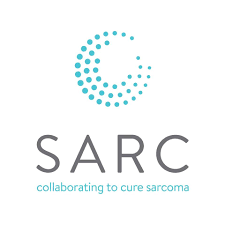
The Sarcoma Alliance for Research through Colloboration (SARC) SPORE Career Development program supports the ideas and work of investigators that complement the depth of sarcoma translational research and to help ensure the continual renewal of high-quality scientific endeavors in the SARC Sarcoma SPORE.
-
St. Baldrick's Grants

Grant Application and Guidlines:
St Baldrick's Fellow: The Foundation funds years 3–5 of a pediatric oncology research fellowship, with an opportunity for one additional year of funding. This mechanism is designed to support a Fellow’s salary and benefits only. The Foundation encourages applications from institutions with fellowship programs which have not previously received St. Baldrick’s funding for this grant mechanism.Research Grants: These one-year grants are for specific research projects which are hypothesis driven and may be laboratory, clinical or epidemiological research. While the average grant is $100,000 or less, the proposed budget must be realistic for the project.
Supportive Care Research Grants: These are for research projects which are hypothesis-driven and focus on areas related to the supportive care of children and adolescents with cancer. Applications are accepted from Ph.D. and D.N.P. holders. Examples include studies related to symptom clusters, patient reported outcomes or quality of life, health communication, health promotion, and psychosocial support across the trajectory from diagnosis to survivorship or end-of-life care. While the average grant is $50,000 or less, the proposed budget must be realistic for the project.
-
US Bone and Joint Initiative
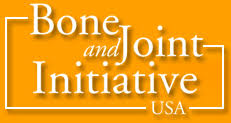
The United States Bone and Joint Initiative (USBJI) and Bone and Joint Canada are dedicated to raising public awareness and to increasing research of musculoskeletal diseases. Research in the musculoskeletal diseases performed by young investigators is not keeping pace with the increasing burden of the diseases. In response, the Young Investigator Initiative is a career development and grant mentoring program providing early-career investigators an opportunity to work with experienced researchers in our field to assist them in securing funding and other survival skills required for pursuing an academic career.